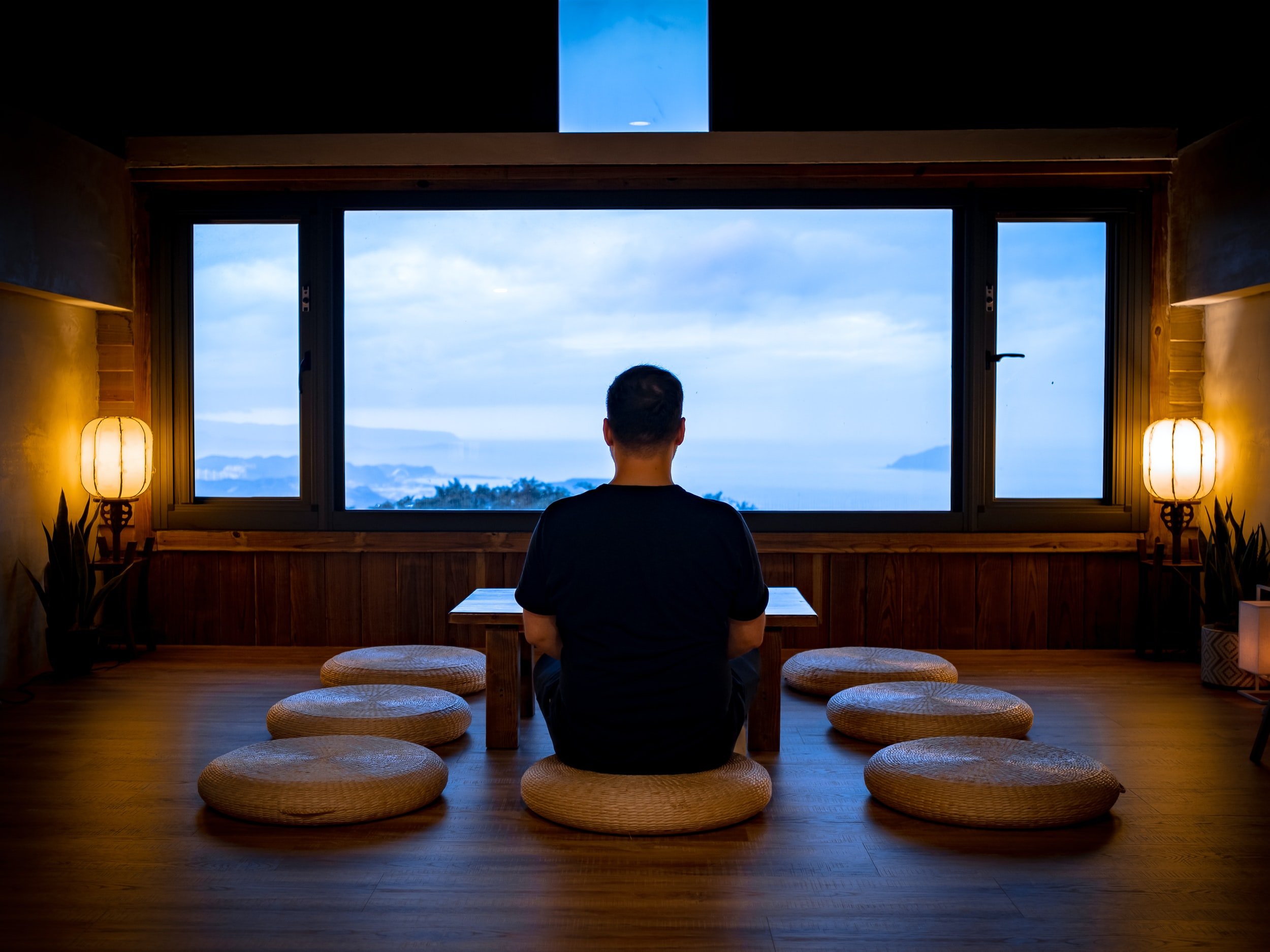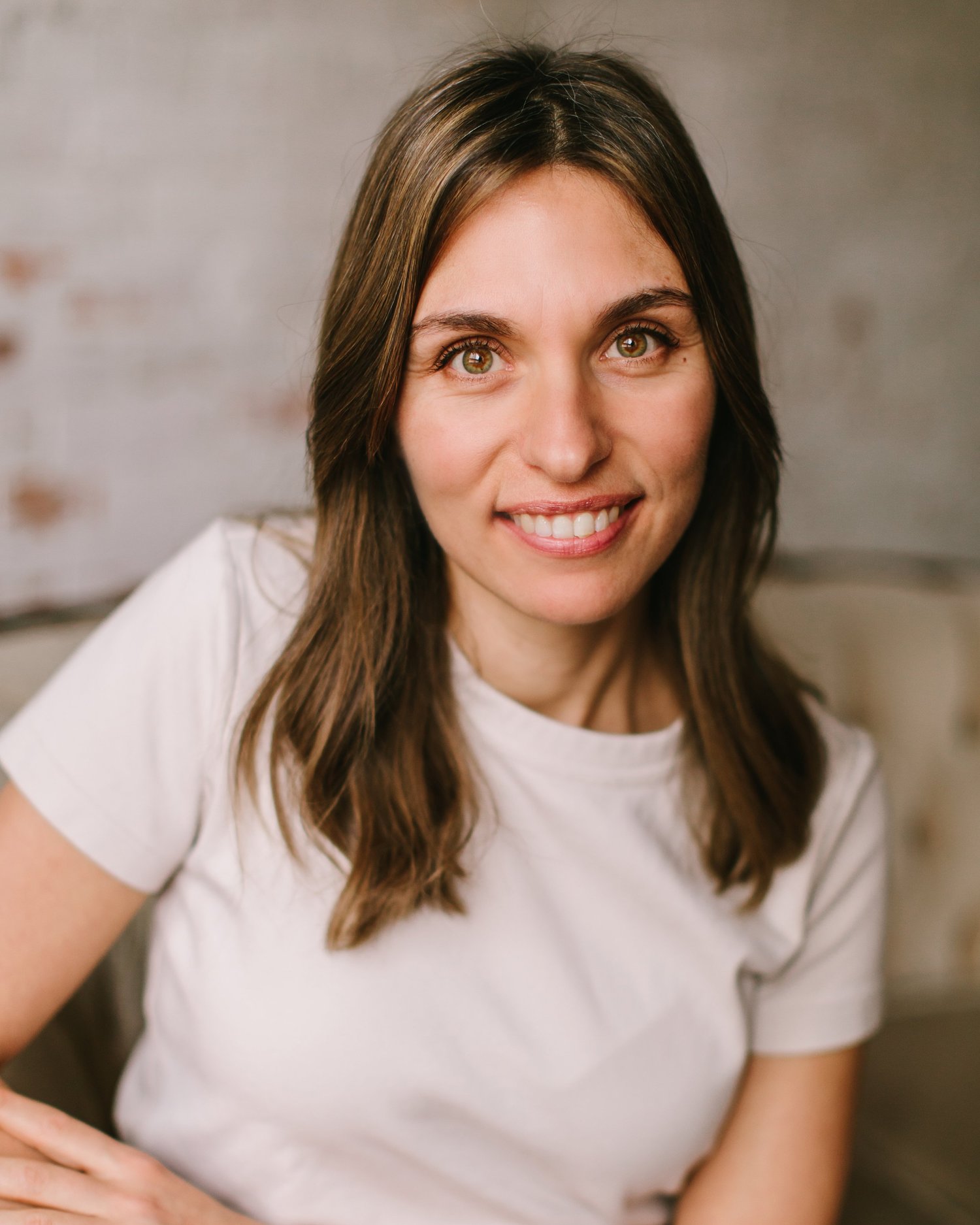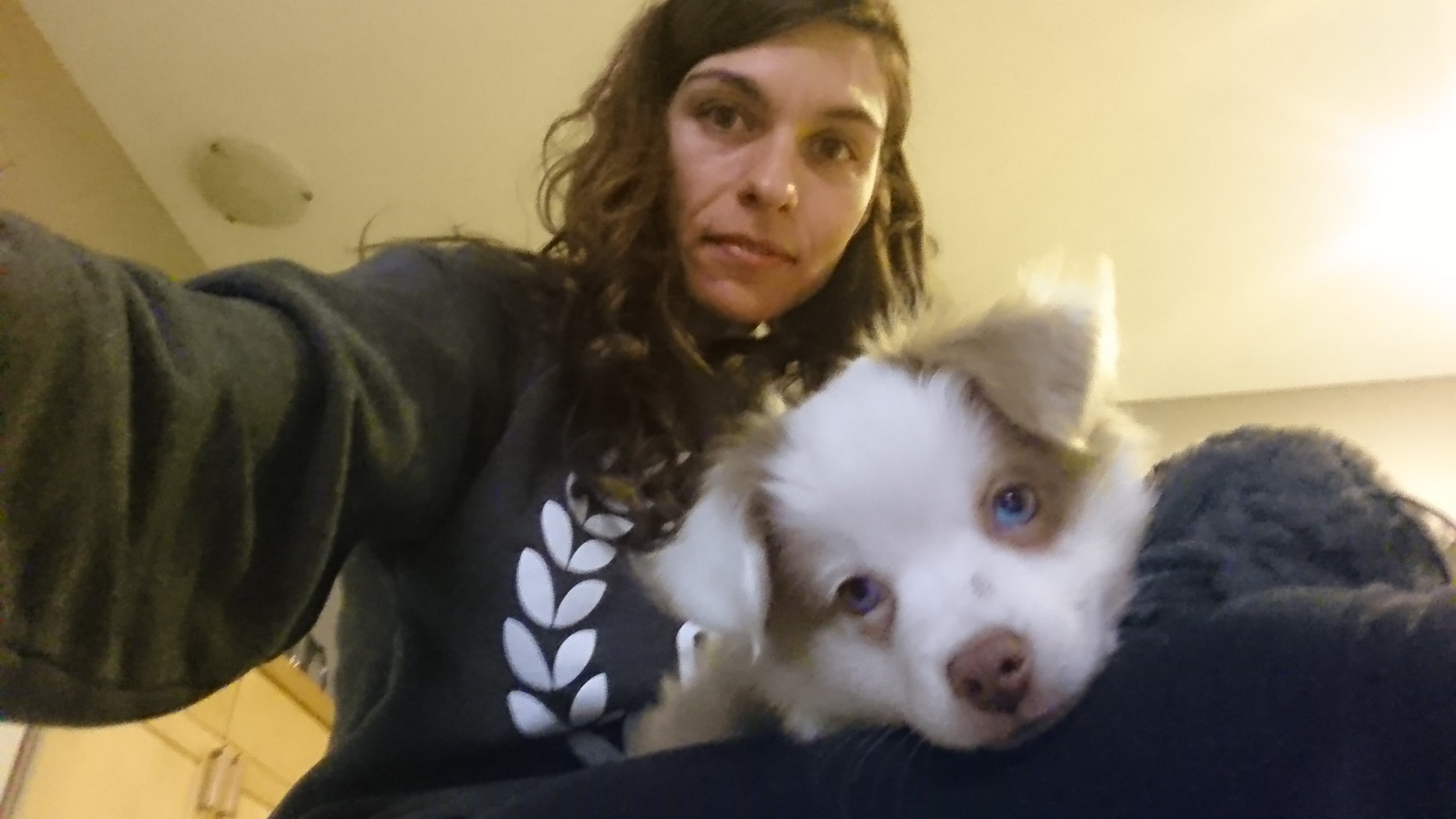Turn the science of aging into daily mindful choices that compound.
Hello! I am Jihane
(pronounced Jee-A-n)
I have a PhD in health sciences, and after a decade of experience in biomedical research, including anti-aging research and I now am an executive longevity coach, hear to help you extend your healthy years with simple routines that produce a big ROI.
Your 40s is a pivotal moment for your health and I want to help you make your body work for you.
If you are overweight, overworked and have the dad bod to show for, you need to know that you are a ticking time bomb.
And… That there are specific solutions to lose belly fat.
And when you do, you prolong your life.
Curious to hear more? Click the button below
I tell it all
I was exactly where you are now.
I tell my story in the first episode of my podcast, you can press play right here, to hear how I went from being a workaholic who drunk too much, was a stress-wreck and aging too fast, to being balanced, found peace and got my best body ever!
Or you can keep reading below.
I love getting older! What about you?
Canadian marathoner BJ McHugh, 87. Photo source: Frank Stebner
I am more confident, more purposeful and I look forward to more grey in my hair because I hope to see a vision for my life come true. I want to age like BJ McHugh and Jacinto Bonilla. When I’m 70, I want to be able to pick up and lift my grand kids in the air and run with joy. When I’m 80, I want to hike mountains and cycle to fund raise to make a difference in a community and inspire people to achieve great things. When I’m 90, I want to fully enjoy what is left or my life.
In my old age, I will reap the harvest of a life lived intentionally.
And I know I can be strong, energetic and uplifting because I am leveraging the science of aging well today. I have made of my well being a priority because when we’re vibrant, we achieve more and we make the world better.
Life is fuller when we make conscious choices every day for our health.
Today, I harness unprecedented mental clarity and focus. I can direct my attention at will and nothing can take my mind off my priorities. From the moment I get up until I go to bed, I enjoy high levels of energy. My mood is positive and stable all through the day.
But it wasn’t always the case. In fact, I laugh at my 35-year old self who had studied Biology but lived her life without a clue…
Work hard, play hard, party harder.
That’s how I used to live. In the lab 7 days a week, I was addicted to my job. Science is exhilarating. And to be honest, my self-worth was tied to my work: feeling “useless” when I don’t work. Can you relate? Ever since I was a child, I felt like my life would only be worth living if I could help others.
Like you, I am one of those people driven by achievement, who want to have an impact. At the time, it was all about what I was doing - never about who I was being.
What I was doing was a source of meaning. I was contributing to making cancer treatment less toxic before I joined a start-up involved in finding a solution to age-related diseases.
I really wanted to make a difference. And I was quite good at my job.
But I overdid it.
Balance? I knew the word but it had no reality behind it. I was in the lab 24/7, finding pride in my streak without a day off - all the while secretly resenting co-workers who had a life.
Due to a competitive nature, I was constantly pushing to outperform myself.
I played hard at the gym. I was there everyday. Because this was my only stress management strategy, I overdid that too. There was not much play in my life. My version of fun was to get drunk. Which I overdid as well.
When I decided to participate in a 200km bike ride for a cancer research fundraising, 2 years in a row, I trained even harder. On Saturday mornings I would go for a 4-hour ride with my co-workers, often showing up - late - having slept 3 hours, hungover.
Crossing the finish line of the 200km Ride to conquer cancer 2015 with the Cross Cancer Institute team.
On the week-end, to trump my loneliness, I usually went out. I used to drink because it made me less serious. I used to drink when I had something to celebrate or when I felt sad. I used to smoke because I was bored. I had all of the unhealthy coping skills. And little did I know, these bad habits robbed me of my mental performance and made me age faster.
My bad habits were on repeat. Starting the day with too much coffee and an easy thing to grab for breakfast, often packed with carbs, no protein and no fat. In the afternoon, I would inevitably crash. I relied on more coffee (my average was 4 cups a day) and something sweet to get a boost.
Today when I think about this time in my life, I can tell that the combo of excess caffeine and sugar made my heart pounding, made me anywhere from irritable to angry (snapping at coworkers), made me so clumsy that I was making mistakes in my experiments and that it destroyed my ability to focus. But at the time, I was mainly oblivious. I had no self-awareness.
Here I was… With a PhD in Biology and absolutely clueless when it comes to the basics of nutrition.
I thought I had ADHD, not knowing that it was all due to self-inflected patterns.
How you do one thing is how you do everything. My routines lacked any form of intention, so did my whole life. I was just tossed around by whatever was happening to me.
A wake up call.
Everything changed on my 35th birthday. Sitting at a bus stop, holding the flowers that my boyfriend - now husband - got me. On that day I saw myself and thought that I looked like crap. I looked way older than I was.
That’s when I realized the irony of using science to make an anti-aging pill, while living life without respect for my body. My lifestyle was making me age so fast.
Wrinkles, bags under eyes, skin and bones: I looked like crap.
On my 35th birthday, I realized the irony of using science to make an anti-aging pill, while living a life that was obviously making me age.
Being in a relationship broke me out of loneliness and love opened me to the fact that I actually did want to take care of myself. This was the lead domino I needed to get healthier.
It was only small shifts in the beginning: like having one beer, instead of my usual two at a work lunch, finding myself saying “I am trying to make better choices” to a co-worker pushing for another round.
Then I reclaimed my week-ends to nurture my relationship. Not without guilt. Not without fear. At first, taking time for rest and play was extremely uncomfortable.
I was very anxious about it when I started to prioritize my life outside of the lab. We got a puppy, who had to be walked, trained and required presence. This was very significant in my life because I had to learn to relax, learn how to be fully present with this little guy.
I had to take on a new identity.
The small shifts led to bigger shifts.
But at that point, my attitude had already caused too much damage. From the winter of 2016, misalignment at work kept growing. I wasn’t getting credit for my work, my career was stalling, I didn’t feel valued, and I was overworked.
That’s also when I heard a number that hit me like a lightning bolt: half of all cancer deaths could be prevented with lifestyle changes.
My skinny, unhealthy, anxious self & Farley Mowat, my aussie puppy (March 2017).
A paradigm shift
“Healthy lifestyle could prevent half of all cancer deaths”
This rocked my world. The cancer stats published for 2016 highlighted that most of cancer deaths could be prevented with lifestyle changes. There was absolutely no technology, even the best scientists could develop, that would save the lives of 50% of patients taking it. This was a turning point for me.
If prevention could be more impactful than medication, why are we doing so poorly at it?
Through this paradigm shift the misalignment I was experiencing in the lab just got deeper. I slowly lost a sense of meaning from my work, my motivation plummeted and by the time I was told “I don’t see a role for you in this organization”, I was at the end of my rope.
It’s not until recently that I was able to identify all the signs of a burnout.
I didn’t just lose a job and a source of income. I lost everything I had worked for until then. I lost any opportunity to continue in Research.
This is exactly what brings me to you: I want to help you protect all that you have worked for, by putting your health first now.
I spent the next 6 months bringing myself back to life by engaging in radical self-care.
It changed my life, for the better.
I changed my diet, I made my mindfulness practice consistent and I started to take on behaviors to activate my longevity genes. The lifestyles changes that I made then opened up new possibilities for me.
I suddenly experienced higher levels of focus and cognition, my energy was high all day without ever crashing, and
I started to invest in myself, in my own vision and re-centered around my personal values. I put meaning first and reconnected with my purpose.
When I went through these lifestyles changes, I then understood why we are not doing a better job at prevention: changing is hard.
Helping you live a richer, longer life
After all these life lessons, I knew I was called to help others make lifestyle changes that can prevent disease and activate their longevity genes, without having to learn the science in depth or experiencing the many challenges.
I captured in my program 1UP the Extra Life Solution, the 3 transformative steps that helped me look like I was 26 when I was 36: the habits that allowed me to stay biologically younger than my chronological age to these days (Read more about biological age in the Science-based blog).
With these 3 steps, I transformed my body composition and got my best body ever, without restricting my diet, and none of the bummer of weight loss!
3 steps to lose belly fat and build muscle for a longer life in just 12 weeks:
How I went down to my ideal body fat and put on 3lbs of muscle in just 12 weeks!

Want to know how to start activating YOUR longevity genes today?
Get actionable tips weekly:
Do you want to…
-

Experience new levels of mental clarity, focus and attention?
Small changes in your food habits could yield major impacts on the way you think and how you make decisions.
-

Stay strong, vibrant and keep performing as you get older?
With the science of aging, start introducing small changes that compound.
-

Be zen, no matter what life throws at you?
What if you could buffer against stress with such mastery that you would be unstoppable and stay in control in the midst of chaos?
Aging happens at different rates for everyone, at the interplay between genetics and environment.
I personally experienced both accelerated and slower aging.
I was aging faster when I:
did not have appropriate rest and balance
had too much sugar in my diet
ate late at night
experienced loneliness
drunk too much and as an unhealthy coping skill
was a smoker
over-exercised
I was aging slower when I:
was sleeping better and working less
switched to a ketogenic diet and started fasting
fasted up to 3 days twice in a year
was in a relationship
ran in -20C weather and going to the sauna at least once a week
adopted a mindfulness practice
experienced a spiritual awakening

Credentials you can trust.
2010: PhD in Health and life sciences from Université Henri Poincarré, France
2010-2014: Biomedical research in Cancer Biology, including a post-doc at the University of Alberta
2014-2017: Research and development in anti-aging with startup Oisin Biotech
2022: ADAPT-Certified functional health coach certification.
My coaching
Unlike some people who start coaching, I didn’t just call myself a health coach. I studied the art and science of effective coaching and pursued a certification in a program approved by the National board of Health and Wellness coaching.
I use an evidence-based approach to behavior change.
I guide the conversations using a proven framework to help people to change. I have learned validated techniques.
A framework for impactful conversations
Motivational interviewing
Positive Psychology
Trans-theoretical model of change
2 years of experience with individuals and groups









